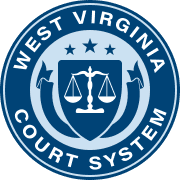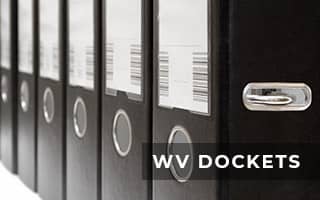West Virginia Court Records Lookup
The following is for information purposes only
West Virginia Court Records

What types of courts are in West Virginia?

The court system in the state of West Virginia is made up of trial courts, an intermediate court of appeals, and a state supreme court. The trails courts are considered the lower-level courts, with limited jurisdiction. Appeals are heard and approved by the court of appeals, though the supreme court has the last say in whether cases are overturned.
In addition to the trial courts, there are two federal courts in the state, one that serves the northern part of the state and another that serves the southern part of the state. The federal courts have jurisdiction over all court cases that violate criminal and civil federal law. All appeals for federal courts are heard by the appointed circuit court of the United States.

How are court cases in West Virginia managed?

The supreme court of West Virginia is the highest governing power in the court system. There are five elected justices that sit on the court, each serving a 12-year term. Apart from the ability to appeal cases heard and decided by the lower courts, the supreme court has jurisdiction over the bar for the attorneys in the state and advisory opinions that are made by the court system in the state.
They can hear cases that deal with a civil writ, administrative agency, and even criminal and civil cases that take place in the state. Among all of the cases heard by the lower courts, the supreme court can choose if they wish to overturn a ruling or hold a hearing for a case if they believe that the law was not upheld. All hearings in the supreme court do not have juries, testimonies, or witnesses, and generally involve only attorneys that defend their client's case.

West Virginia Courthouses, Sheriff's Offices, Police Departments, Jails, & Prisons
- Barbour
- Berkeley
- Boone
- Braxton
- Brooke
- Cabell
- Calhoun
- Clay
- Doddridge
- Fayette
- Gilmer
- Grant
- Greenbrier
- Hampshire
- Hancock
- Hardy
- Harrison
- Jackson
- Jefferson
- Kanawha
- Lewis
- Lincoln
- Logan
- Marion
- Marshall
- Mason
- Mcdowell
- Mercer
- Mineral
- Mingo
- Monongalia
- Monroe
- Morgan
- Nicholas
- Ohio
- Pendleton
- Pleasants
- Pocahontas
- Preston
- Putnam
- Raleigh
- Randolph
- Ritchie
- Roane
- Summers
- Taylor
- Tucker
- Tyler
- Upshur
- Wayne
- Webster
- Wetzel
- Wirt
- Wood
- Wyoming

Which trial courts are in West Virginia?

The municipal courts hold jury trials and deal with cases that involve DWI and DUI cases, cases where traffic laws are violated and hears cases that deal with parking violations. Though they hear jury trials, most of the cases in this court are minor and only deal with small civil and criminal cases in the state.

Magistrate courts have jurisdiction with cases that deal with small claims up to $5000. Most of the cases deal with civil protection, restraining orders, and misdemeanor cases. This court has jurisdiction to hear juvenile cases and cases that deal with traffic violations as well. The magistrate court holds preliminary hearings and can hear exclusive cases when it comes to felonies and criminal appeals.

The family courts in the state of West Virginia do not hold trial cases. Most cases involve parties and their attorneys, decided on by the judge in that court. This court hears cases that deal with domestic relations and can oversee both custody and divorce hearings.

The circuit court in the state of West Virginia is the court that deals with appeals from the lower courts and hear exclusive cases for both felony and criminal appeals. The court also can hear cases that involve property and can hear cases that deal with probation, estate matters, and case that deal with the mental health of an individual. Circuit courts can also hear trials that involve juveniles and minors, with jurisdiction over some family matters.

What are the federal district courts in West Virginia?

There are two federal branches in the state of West Virginia. The federal district courts in West Virginia are the:
- Northern District of West Virginia – The Northern District federal court of West Virginia has original jurisdiction over cases within the northern part of the state. That includes counties like Barbour, Harrison, and Jefferson. The court's jurisdiction lies with all criminal and civil matters that fall under federal law.
- Southern District of West Virginia – The Southern District federal court of West Virginia serves the southern half of the state which includes counites like Logan and Boone. This court has jurisdiction to hear all civil and criminal cases that violate federal law within the southern part of the state.
Each of the two districts also has a federal bankruptcy court, which has jurisdiction over all of the bankruptcy cases within their jurisdiction. All of the judges that sit on the federal court are nominated by the president of the United States and confirmed into their seats with a vote from the United States Senate. All of the justices serve life terms and seats are only up for an appointment in the event that a justice passes away or retires. The justices can choose magistrate judges, which they assign tasks to. For all courts, appeals go to the U.S. Court of Appeals for the 4th Circuit.

How to find electronic court records in West Virginia?
According to the West Virginia Freedom of Information Act (FOIA), court records in the state are open to the general public. While most cases are public, there are a few court documents that are sealed, unable to be obtained by anyone without legal permission.
For those that are pubic, individuals can visit the West Virginia State Law Library, which generally has cases on record. To initiate a search for court records, those interested will need to know either the case number, the name of the parties involved or the name of the attorney that defended the case.
Other options to obtain records involve visiting the court in which the case was heard, which requires the name of the desired document along with information like the names of those involved or the case number. This option is only available during operating hours of the courthouse. The clerks' office will look up information and obtain what they have on file, providing it for a cost to the interested individual.
